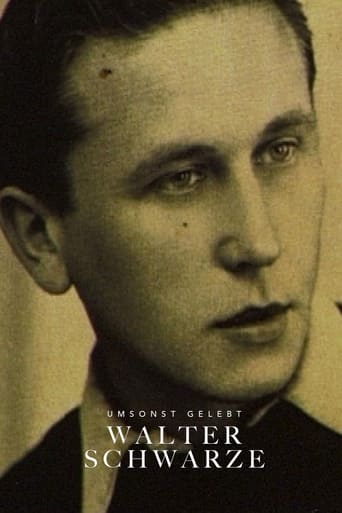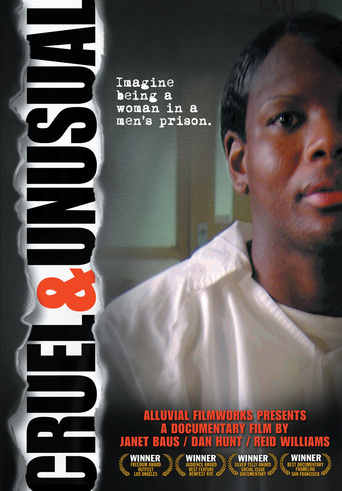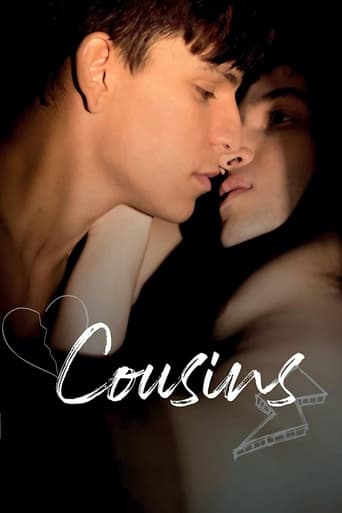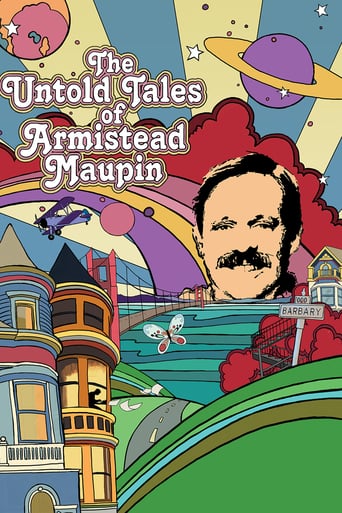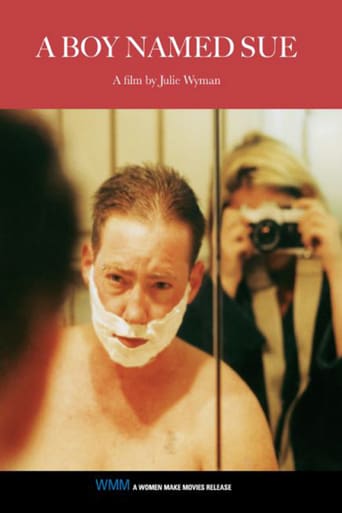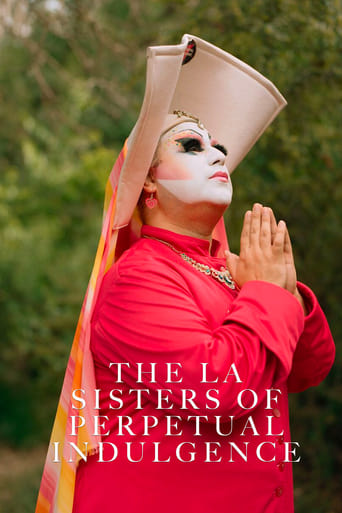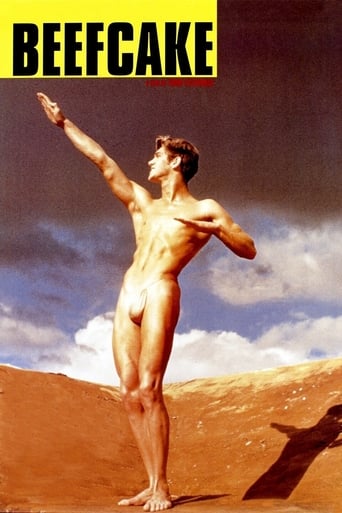
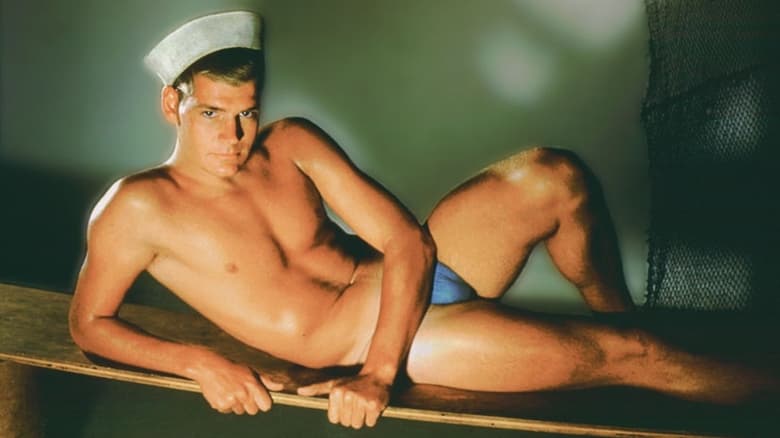
Beefcake (1998)
A look at the 1950s muscle men's magazines and the representative industry which were popular supposedly as health and fitness magazines, but were in reality primarily being purchased by the still-underground homosexual community. Chief among the purveyors of this literature was Bob Mizer, who maintained a magazine and developed sexually inexplicit men's films for over 40 years. Aided by his mother, the two maintained a stable of not so innocent studs.
Watch Trailer
Cast
Similar titles
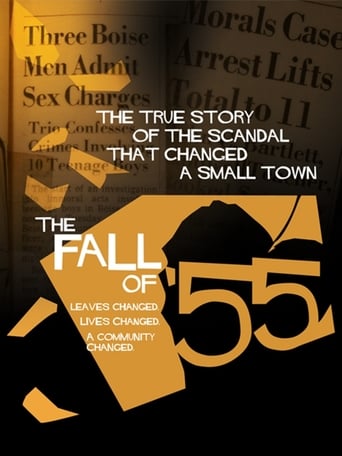
Reviews
Absolutely Brilliant!
Although it has its amusing moments, in eneral the plot does not convince.
It's complicated... I really like the directing, acting and writing but, there are issues with the way it's shot that I just can't deny. As much as I love the storytelling and the fantastic performance but, there are also certain scenes that didn't need to exist.
Funny, strange, confrontational and subversive, this is one of the most interesting experiences you'll have at the cinema this year.
I love this movie for a number of reasons: There is a lot of flesh, sometimes even full frontal. The lead character is beautiful and fresh (although he didn't have much of a career after this, which is a loss to us all.) And there's a lot of gay history, albeit about a very specific area of history. It's also filmed beautifully, very stylized and obviously on sets. It's gorgeous. I've seen it many times.It's not for everybody. I think that's what I like about it. You can see that they spent a good amount of money on it, but it's only realistically intended for a gay audience. So many gay movies suck. The nineties were cruel with their promise of films that were stupid or poorly done. This one isn't either. I've had my copy for years and I will continue to watch it over and over.
In the 50's, a gay photographer called Bob Mizer (Daniel MacIvor) founded an agency of male models, releasing a muscle magazine called "Physique Pictorial" and movie of men, and many of the models became prostitutes. "Beefcake" shows the rise and fall of this pervert.Alternating footages from the 50's, testimony of many models and Bob Mizer himself in the present days, the director Thom Fitzgerald used this subterfuge to show naked men and lots of penis along 93 minutes running time, in a complete bad taste and very silly crap. I have never heard anything about this morally corrupt Bob Mizer and I do not know what AMG is. In my opinion, only gay and very specific audiences might like the theme of this boring and pretentious movie. My vote is two.Title (Brazil): "Carne Fresca" ("Fresh Meat")
Beefcake is a film that flits between documentary style 'talking heads' and a pseudo-narrative based on the story of Bob Mizer and the rise and fall of his not-so-secret, voyeur-satisfying empire. Throughout the narrative Beefcake does seem to teeter between the subject of pornography and actually becoming soft-core pornography with the plot emphasis less on the subjectivity of the Athletic Model Guild (AMG) industry and more on the gratuitous recreation of poses and scenes from Mizer's original films and photographs. The film was partly funded by Channel 4 / Film Four and felt as if it were a cross between two other Channel 4 programmes: Eurotrash (a popular, long running, mildly pornographic programme that eroticised both sexes) and Queer As Folk (a gay drama series released in the same year as Beefcake). Though it did come under attack from some conservative viewers (and notably Gary Bushell's review in the Sun newspaper helped to ensure that alcoholic drinks company Becks pulled out their ad-break sponsorship of the drama) Queer As Folk managed to attract a large heterosexual audience. Similarly to Beefcake, Queer As Folk explores the subject of underage gay sex, male desirability and the naivety of young people. The difference is though that over the course of the series Queer As Folk tries to morally justify (and in some cases; punish) those who break the patriarchal rules whereas in Beefcake the actions of some of the characters don't seem to be justified at all to the extent that they're being celebrated or glorified. If Beefcake is more a celebration of homosexuality than an exploration of homosexuality, then it does seems to cut down its audience to a niche.The documentary aspects of this film (the interviews with ex-AMG models) all tend to show the AMG in a positive light. This isn't to say that they shouldn't, or that the interviewees were lying or manipulated, but there are no interviews with any one who opposed the idea of AMG publications at the time, and the nearest we get to a disapproval of the situation is when one of the interviewees claims that Mizer was a 'pervert' but continued working for him because the money was good. There doesn't appear to be two sides to this tale beyond the comparatively small sequence at the end where Mizer is found guilty and his mother is shamed though this seems to be immediately glossed over with footage that Mizer took in the years after the court case. How can such an unbalanced, bias film be intended for a general audience?Without a coherent moral judgement, a purposely jumbled plot, and a fictional story interspersed with non-fictional interviews of the AMG models, Beefcake becomes a pastiche of the AMG magazines it's exploring and therefore leaves the audience in no position to judge the subject of the film fairly. It becomes a specialist film for someone who had already made their mind up about the situation.Beefcake could be described as a 'feel good film'. This phrase is something that's often attributed to 'gay' films by gay viewers. Beautiful Thing (1996) directed by Hettie MacDonald, is part of the same spectrum of gay cinema in that though there is a plot, it's very, very thin and concentrates on showing the aspects of homosexuality that it explores in a positive light. People like to see characters on screen that they can associate with, so it's no surprise that gay films (and even gay characters) can attract a cult following. Whilst it does (to some extent) counter balance homophobia or under representation in mainstream film, it doesn't necessarily mean that the characters are accurate depictions or that few people will watch the film other than homosexuals as the content is far too specific. Not only is the film about homosexuality, but more importantly it's about homoerotic pornography, a subject that a non-homosexual male might even feel slightly afraid of.Nostalgia is also something played upon heavily in this film through the ex-models and fans of the AMG reminiscing about the now defunct publication. How could you be nostalgic about a time that you didn't remember or didn't agree with in principal in the first place? With out prior knowledge of the marketing, viewing the film alone, you could make a pretty safe assumption through the lack of disavowal that this film was made for a specialist audience. We're also left with no clear idea as to whether Mizer genuinely was interested in male beauty as an art form or whether his only interest was in the pornographic nature of the prints though the two fields of thought aren't necessarily mutually exclusive.
The makers of this film set a bit of a challenge for themselves. How to make an interesting movie about the world of magazine photography. The subject in this case is one that hasn't been comprehensively covered before: male physique photography. Generally speaking, in 30s the emphasis was on art, in the 40s on fitness, in the 50s on sensuality, and in the 60s on sexuality. The film explores all aspects of this industry by focusing on a few of the top photographers and their models. Surprisingly, not all participants had the same ideas or experiences about their work, nor the same recollections. In fact, these folk seemed to rather enjoy their work, which did emphasize a healthy, fit body. The relationships of the models emerges as congenial and brotherly, and the photographic activity as engaging. As in any "entertainment type industry" there were some over-the-top kibitzing, which in some cases digressed into rather kinky goings on. Still, the makers of this film manage to remain light hearted about most of it, while allowing some top models and fitness stars to share their memories in short commentary episodes. For those who were not into this area, they could simply not buy the magazines nor be concerned about the whole matter. For those who found this an area of interest, they were free to make their own choices. What caused problems were conflict with the law, which itself may be controversial. These clashes are also presented here in enactments. It was interesting to see Joe D'Allesandro, well remembered from some of Andy Warhol's films, being interviewed--and what a candid, down to earth personality he is. The fellows, though, come across as having a good time. While it may not be the most ambitious of professions, modeling at least keeps one off the streets -- that is, almost everyone.




